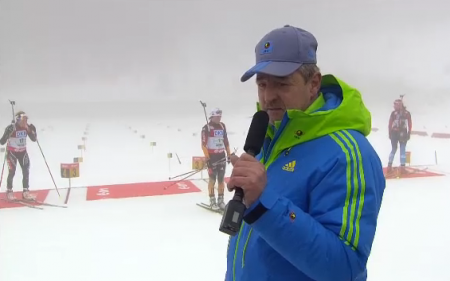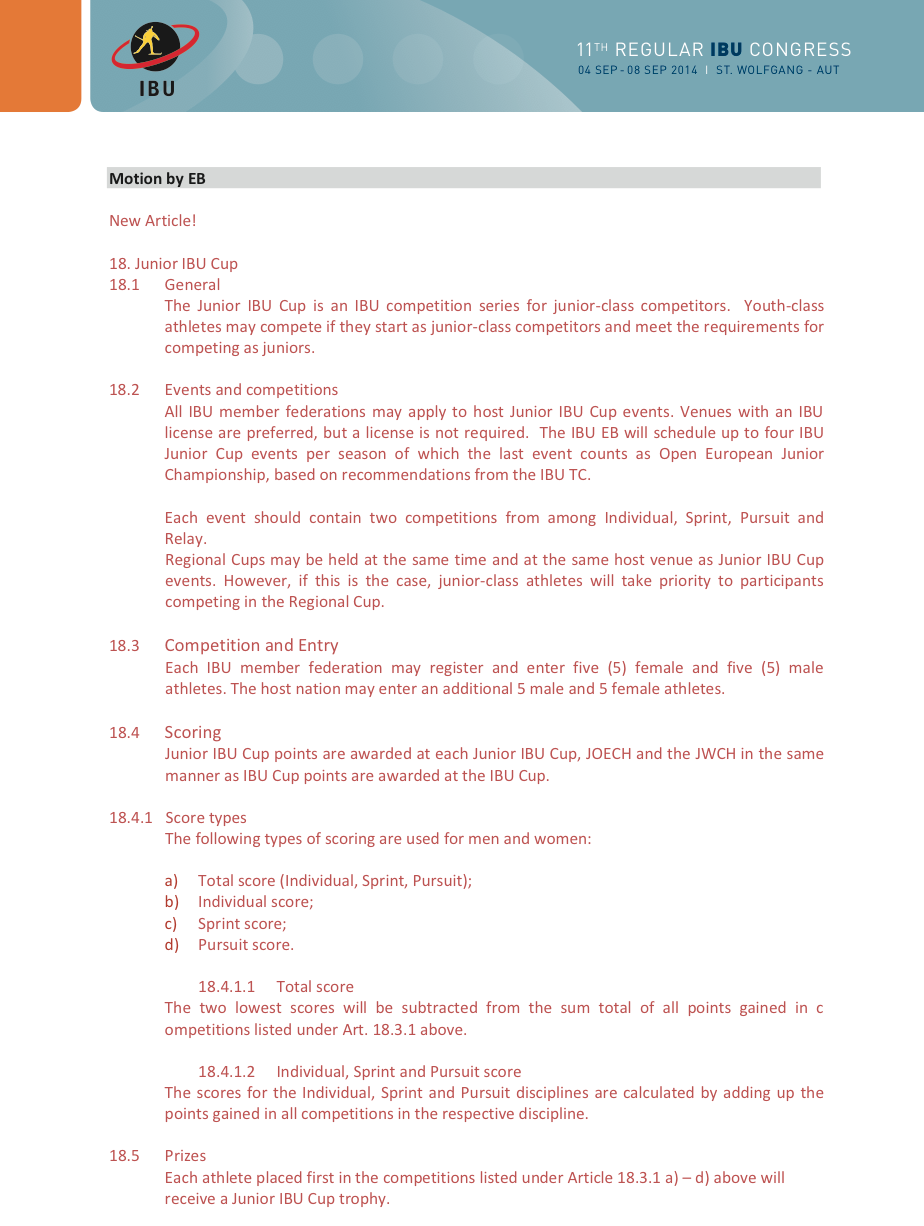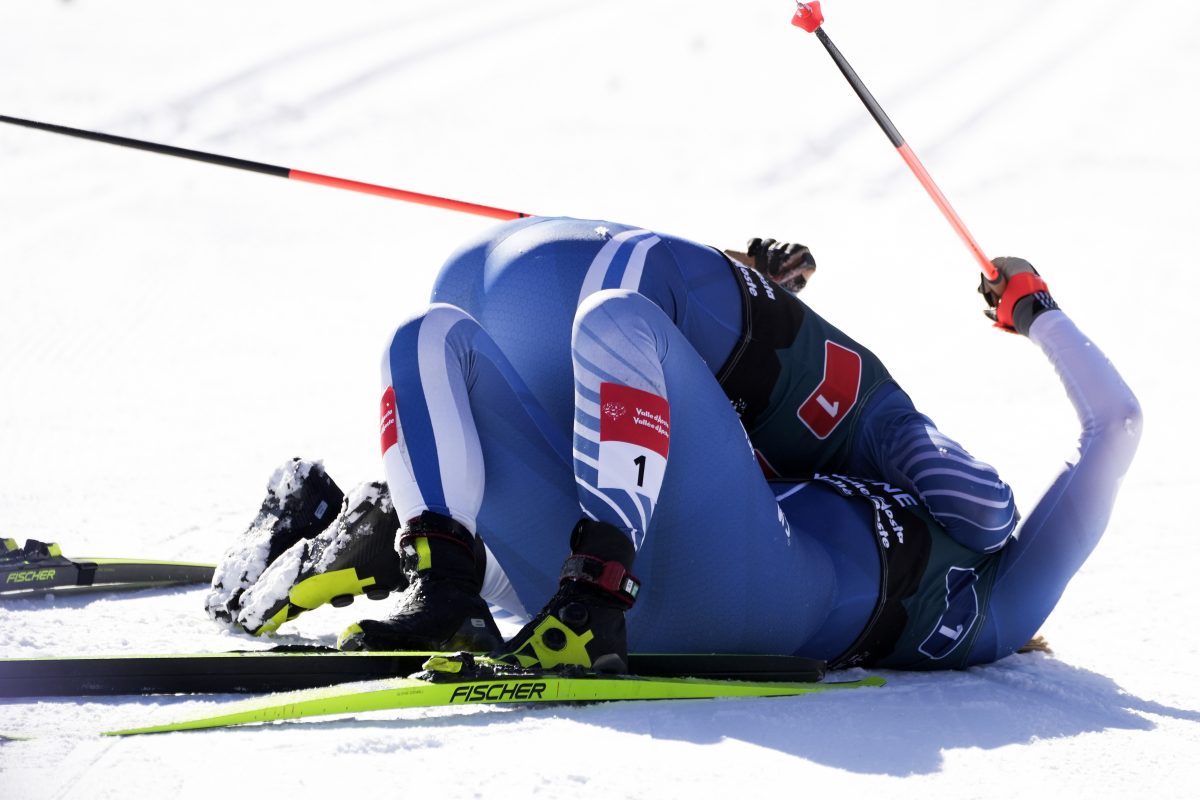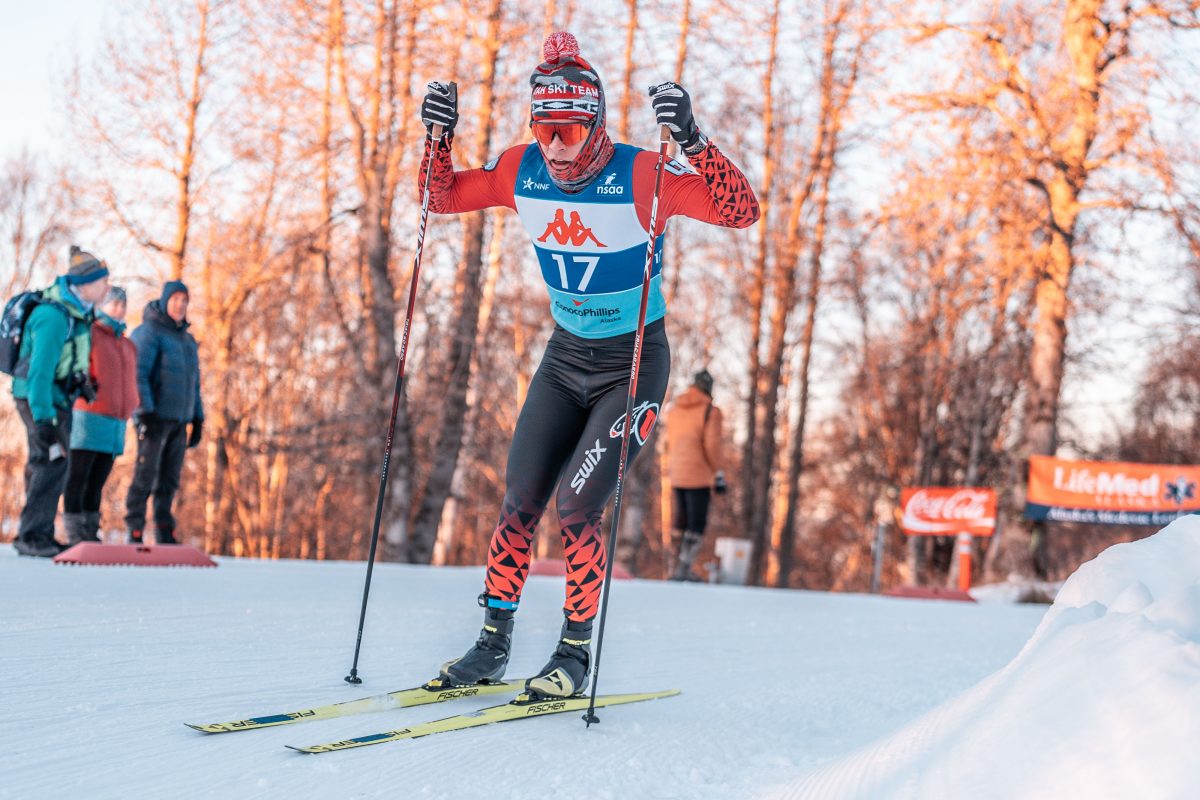
The International Biathlon Union (IBU) holds a congress every two years, where member federations can vote on rule changes, the location of future championship events, and Executive Board membership.
This year’s congress was scheduled for Kiev, Ukraine, but has since been moved to St. Wolfgang, Austria. It’s slated for 4-8 September.
Rule Changes
A number of rule and organizational changes have been proposed, many of which are spurred by recent developments in the sport or particular incidents from the last season. There are too many proposals to completely catalogue, but here’s a smattering of the highlights.
Delayed and Halted Competitions
Biathlon suffered from a number of cancellations and mid-race halts in the last season. The women’s field had it particularly rough, with a pursuit race in Östersund, Sweden, canceled after the first three shooting stages were completed due to high wind – and then later in the season a relay in Antholz, Italy, called off mid-race when heavy fog rolled in and obscured the targets.
Races at the Sochi Olympics were also delayed for days due to fog.
The Executive Board is offering up an amendment stating that races called off after the third shooting bout, for a four-stage race, or the third leg of a relay, will be scored based on standings at the time of the cancellation. Currently, no results are recorded in this situation, but the board believes that ¾ finished is close enough to award racers World Cup points.
In individual-start events, clearly this solution is not possible as only part of the field would have started or finished.
Cancellations also reduce the number of events which go into World Cup or discipline total scores. In the case of the Individual format and mixed relay, there are only a handful of competitions in a season – perhaps three. What if two are canceled? Does the winner of the sole race held become a discipline champion? The board is proposing that at least two events must be scored for a discipline trophy to be awarded.
They are also proposing to add “to decide if the competition can be started or has to be rescheduled” to the official list of duties for the competition jury.
Finally, the Executive Board has submitted a revision to clarify that delays cannot be appealed to competition juries. In other words: the decision is final.
Race Formats
A common goal of endurance sport bodies is to try to come up with new, spectator-friendly competition formats to generate excitement about their sports. We’ve seen a surge in city sprints and skiathlons in cross country, along with the proposal of an uphill-downhill race.
In biathlon, the goal is the same. The Executive Board is pushing a new relay format: a single mixed relay where one woman and one man from each team ski twice, on shorter loops and a 75 meter penalty loop. The format was tested in Oslo last year as an extra, non-points event at the final World Cup weekend, and had very mixed reviews.
Nevertheless, the Executive Board is proposing adding it as a format at all levels of competition. It is currently slated for its World Cup debut in Nove Mesto, Czech Republic, in February.
In addition, they propose changing the penalty for missed shots in the individual format from 60 to 45 seconds of added time in the youth category, in order to make races more closely-contested. In senior racing, individual races are 15 km for women and 20 km for men. In the youth category, they are just 12.5 km for men and 10 km for women; a 60-second shooting penalty gives the format a different balance and focus between skiing and shooting when the ski courses are so much shorter.
Complaints about U-26 Championships and Nations Cup Scores
A variety of national federations complained about how race organization was affecting their athletes.
Several proposals focused on the Open European Championships, which are restricted to competitors under the age of 26. Points from the event nevertheless count towards the IBU Cup total score. This age limitation is distasteful to serveral federations – Lithuania complained that since it consisted only of younger competitors, it was difficult to market, while Ukraine and Belarus complained that it was unfair to their older competitors not to be allowed to compete at the event.
Both federations submitted proposals to change the structure of the event and in some way either partially or completely remove the age restrictions. The Executive Board has endorsed this concept.
China filed for a rule change of how Nations Cup scores are calculated. Some smaller countries do not travel to every World Cup weekend because of budget constraints, and China argues that this puts them at a disadvantage in terms of scoring Nations Cup points. Furthermore, there is geographic inequality – an underfunded team from Europe nevertheless has a good chance to travel to World Cups, which are, most seasons, entirely in Europe, compared to a team from another continent for whom travel is much more expensive.
The Chinese federation’s proposal appears to be to take only the country’s best day of Nations Cup scoring from the season’s worth of Sprint competitions, then add it to the best day of scoring from an Individual competition, and the best relay result, instead of having a cumulative total based on all of the competitions of these three formats. “From the rule perspective, the IBU should give more opportunities to developing countries and weak countries,” the federation wrote as an explanation.
New Junior IBU Cup
The Executive Board is proposing the creation of a new winter competition circuit: the Junior IBU Cup. The IBU Cup is a second-tier circuit organized the same way as the World Cup. This allows high-level international competition between all of the countries competing in biathlon, instead of merely regional racing opportunities for up-and-coming athletes.
The board would like to see the same opportunities afforded to junior racers. So they propose up to four race weekends per season with similarly-organized competitions open only to juniors. The last weekend would serve as an Open Junior Championships.
Executive Board and Committee Votes
Every four years, the President position is up for election. This is one of those years, so much of the hype about the Congress has centered around that race. Incumbent Anders Besseberg from Norway is up against Dr. Jim Carrabre, a U.S.-based Canadian doctor who has held the post of IBU Vice President of Medical Issues for years, and Russia’s Alexander Tikhonov, a many-time World Champion who served as the organization’s First Vice President in the mid-2000’s.
A full list of nominees up for other committees and positions is available from the IBU website.
One of the other hotly contested races will be for First Vice President. The position has been held by Sergey Kushchenko, a Russian who has been a loyal advisor to Mikhail Prokhorov and also serves as CEO of the Russian Biathlon Union. He’s been on the board of directors of the New Jersey Nets.
Kushchenko will not seek re-election, and four men are vying for the post: Russia’s Victor Maygurov, Sergey Bulygin of Belarus, Olle Dahlin of Sweden, and Volodymyr Brynzak of Ukraine. All are the leaders or second-in-command of their respective national federations.
There is also competition for the posts of Vice President for Marketing and Vice President for Development, although several other incumbents are running unopposed. The Technical Committee is up for election as well. 15 nominees are vying for 10 spots, including United States Biathlon Association CEO Max Cobb, who is the current chairman, and Noel Charchuk of Canada.
Venue Votes
Federations will also get to vote on the location of 2019 World Championships. The nominated venues are Nove Mesto, Czech Republic, which hosted in 2013; Antholz, Italy; Khanty-Mansiysk, Russia, which last hosted in 2011; and Östersund, Sweden.
Two national federations have also applied to host the next Congress in 2016: Moldova nominated the city of Chisinau, while Russia nominated Khanty-Mansiysk.
Chelsea Little
Chelsea Little is FasterSkier's Editor-At-Large. A former racer at Ford Sayre, Dartmouth College and the Craftsbury Green Racing Project, she is a PhD candidate in aquatic ecology in the @Altermatt_lab at Eawag, the Swiss Federal Institute of Aquatic Science and Technology in Zurich, Switzerland. You can follow her on twitter @ChelskiLittle.




